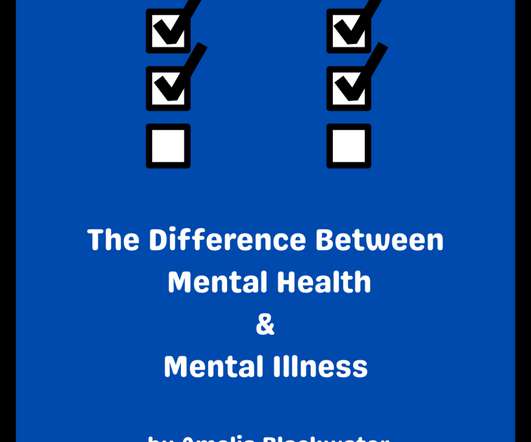Guest Post: The Difference Between Mental Health & Mental Illness by Amelia Blackwater
Bipolar Bandit
OCTOBER 27, 2021
schizophrenia. Substance abuse disorders ex. *Mood disorders ex. depression or bipolar. Personality disorders ex. borderline personality disorder. Psychotic disorders ex. drug addictions. Trauma-related disorders ex. How does Mental Health & Mental Illness Intersect?












Let's personalize your content